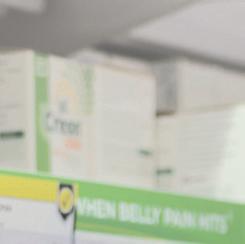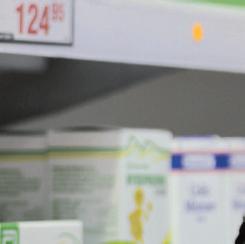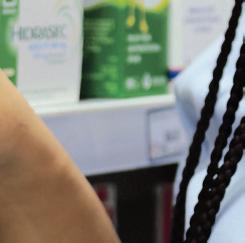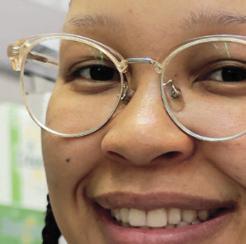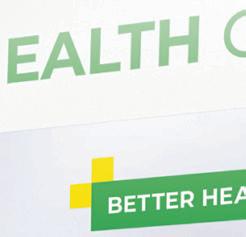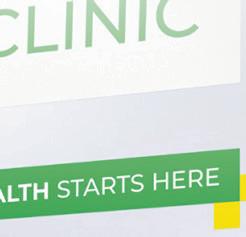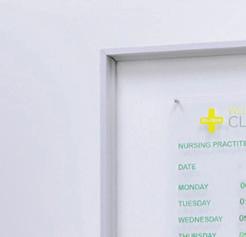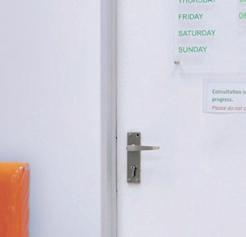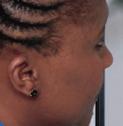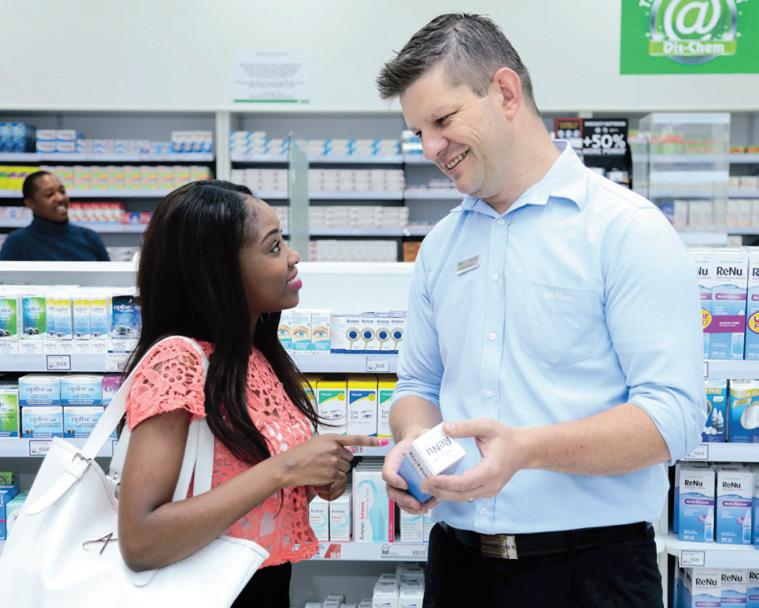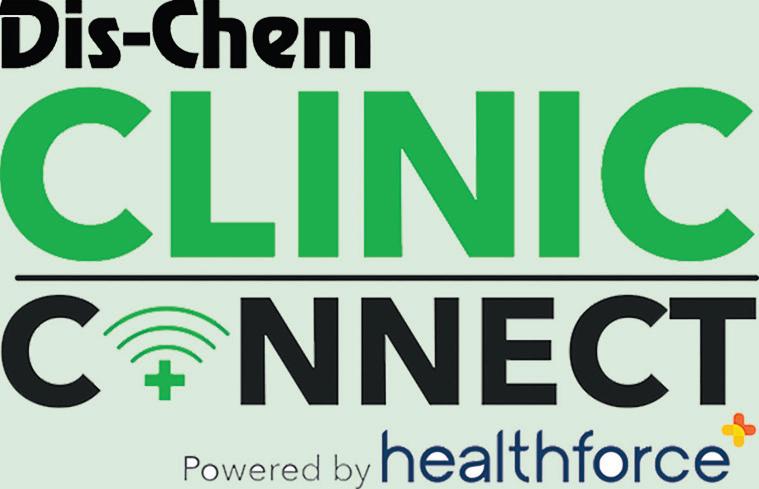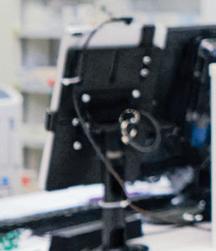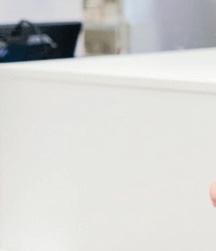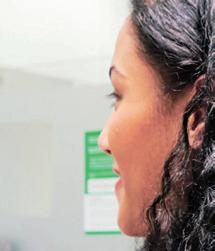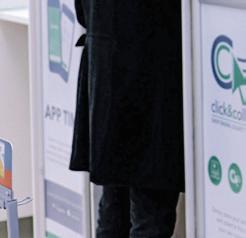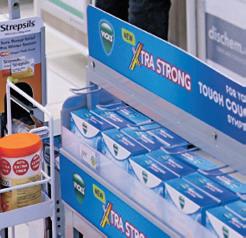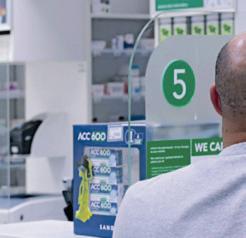EXERCISE, DIET AND SLEEP: THE CRUCIAL HEALTH TRIFECTA

To optimise your wellbeing, make sure you move your body, fuel it with the right food and give it enough rest to allow it to recover. By Lynette Dicey
There is growing pressure on all of us to be healthy . Being healthy is relative and means something different to each person.
However, there are some universal and guiding principles that apply to us all, says Brandon Fairweather, marketing manager of the health category at DisChem Pharmacies.
In a day and age when social media offers up a plethora of experts, tips, diets and fads, it s important to simplify the overload of information we get served daily. Good health comes first ahead of performance. In any event, you perform better when your body is healthy, he says.
Achieving better health is easier than most people think, but it does take some effort and focus, he says. Exercise (movement), eating (food) and rest (sleep and recovery) are three activities crucial to improved health.
Moving your body daily is essential, and if you can t commit to daily exercise, then do it as often as you can each week. Movement is medicine: it increases blood flow, improves sleep, lowers cholesterol, enhances productivity and mental sharpness, releases serotonin and other happy hormones, and also helps regulate cortisol production linked to weight management.
Exercise also enhances stress reduction and helps to keep you in shape if you are able to maintain a balanced eating plan to accompany the workload. A growing number of studies also reveal the

We live in an age when we can proactively assess our current state of health far more easily than before. If you feel something isn’t right, there’s no harm in checking it out
BRANDON FAIRWEATHER Dis-Chem Pharmacies
mental health benefits of exercise based on the neurochemical link between muscles, the heart, the brain and other key organs.
If you re new to fitness, he advises starting with smaller goals and increasing your effort level as you become stronger. For those who are very fit, remember to keep a healthy balance between when and how often you push yourself to your maximum threshold.
Movement must be integrated into your lifestyle as an ongoing and daily choice, says Fairweather.
Food choices should enhance our lives and make us feel alive. It s not about restrictions and banning entire categories of food, but rather about educating yourself about what and how you eat, ensuring a healthy balance in your choices.
Don t just go with the flow or follow overhyped trends, however well-grounded they may be, he advises. Instead, consider your age, gender, activity level, genetics, DNA and lifestyle factors to personalise your dietary selections.
Remember that one person s fuel can be another s poison. Consider broccoli, for example. While the vegetable has a host of health benefits, it s not ideal for those on blood thinners. Carbohydrates and fats are good sources of fuel for athletes, but less suitable for those leading a more sedentary lifestyle, he says.
Getting enough rest is probably the most underrated and overlooked element in the quest to be healthy. When we rest our bodies grow, restore and re-energise. From a physical point of view that is also
when we recover and our muscles grow, says Fairweather.
When it comes to vitamins and supplements, he says taking unbiased and professional advice from a doctor, nurse, clinic sister, dietitian, lifestyle coach or well-trained retail assistants with knowledge of and experience in nutrition is a good idea.
Don t get too caught up in the hype, but rather focus on some core macronutrient and ingredient principles that are reputable and known to serve a specific purpose. Look for products that fit with your needs or intended purpose, such as probiotics or enzymes for gut health, collagen for joints and skin, and vitamins C and D and Zinc for immunity.
He also advises regular health checks. Doing regular checks on key indicators provides you with a good idea of your state of health. Start with noninvasive tests for blood pressure, sugar levels, heart rate and current weight.
Also consider doing stress tests and more specialised and detailed scopes and scans at key intervals. We live in an age when we can proactively assess our current state of health far more easily than before. If you feel something isn t right, there s no harm in checking it out. You never want to miss the boat
We get only one shot at this life, so live each day as if it s your last. It s never too late to pursue good health, and even a small change today can make a difference. Your health is the biggest measure of success, and you will never regret investing in it, he says.
WOMEN’S HEALTH MATTERS

Communities and countries and ultimately the world are only as strong as the health of their women, said Michelle Obama during her first foreign trip as first lady of the US.
The UN has also recognised the importance of women’s health. Its Partnership for Maternal, Newborn and Child Health (PMNCH) has a vision of a world in which every woman, child and adolescent is able to realise their right to health and wellbeing.
Despite this recognition, women often prioritise the health of their families at the expense of their own health. In South Africa, noncommunicable diseases such as cardiovascular disease, diabetes, breast and cervical cancer, HIV/Aids and mental health are particularly prevalent among women.
These healthcare challenges are often influenced by socioeconomic, cultural and environmental dynamics.
More than half of women in South Africa are obese, which is a strong risk factor for Type 2 diabetes. It’s perhaps, therefore, not surprising that diabetes is the leading cause of death among women. The data on breast cancer and cervical cancer is just as alarming: it’s estimated that one in six women globally will develop cancer during their lifetime.
Communities and countries and ultimately the world, are only as strong as the health of their women
MICHELLE OBAMA
As far as HIV is concerned, South Africa has one of the highest prevalence rates in the world with women, especially young women, being disproportionately affected.
Of the 7.3-million adults living with HIV, 64% are women.
“These statistics reveal just how important screening services are for early detection and diagnosis,” says Dr Themba Hadebe, clinical executive at Bonitas Medical Fund. “Early disease detection and appropriate care programmes are proven key factors in improving treatment outcomes and prognosis.”
Bonitas has introduced a Female Health Care Programme to raise awareness and promote education around health and wellness. The aim of the programme is to influence behaviour positively and to encourage early screening and the use of available preventative services.
The World Health Organisation (WHO) estimates that 1-billion people more than one in eight people struggle with a mental disorder. The most prevalent of these are depression and anxiety, but they can also include developmental disorders, schizophrenia, bipolar and conduct disorders
The majority of individuals living with a mental disorder live in middle- and lowincome countries. These are also countries that have less resources to invest in mental healthcare, says the WHO
However, it’s not only middle- and low-income countries where people are struggling with mental health and wellbeing issues.
The Mental State of the World Report 2023, an annual report of the Global Mind Project which investigates the average mental wellbeing scores of internet-enabled populations in 64 countries around the world, reveals that globally, mental wellbeing remains at post-pandemic lows with little sign of recovering to prepandemic levels. The Global Mind Project’s definition of mental wellbeing aligns with that of the WHO, which is the ability of an individual to handle the normal stresses and adversities of life and contribute productively to society.
One of the most significant findings of the 2023 report, published in 2024, is the decline in mental wellbeing of younger generations with 31% of 18- to 34-year-olds rated as distressed or struggling.
The report says it is important that we work to understand why there has been no recovery in mental wellbeing. “As a collective humanity we otherwise risk normalising a substantially diminished state of mental wellbeing that can have disastrous consequences for the long-term prospects of society,” it says.
Contrary to common perception, the report says wealth does not enhance wellbeing. Its research reveals that the age at which a child gets their first smartphone has a direct correlation on mental health outcomes in adulthood. The first generation to be born into a world of smartphones and social media are today’s 18-to 24-year-olds. The younger they were when they got their first smartphone the worse their mental health outcomes in adulthood.

UNPACKING THE GLOBAL DECLINE IN WELLBEING
Understanding our collective mental wellbeing is critical to the prosperity of human beings, writes Lynette Dicey
Another of the report’s findings relates to the consumption of ultra-processed food. More frequent consumption results in substantially poorer mental wellbeing at all ages with a broad impact on symptoms of depression and emotional and cognitive control. More than half of individuals who eat ultra-processed food daily are distressed or struggling, compared to only 18% of those who rarely or never consume ultraprocessed food.
Diminished family bonds also weigh heavily on mental health and wellbeing. Interestingly, wealthier countries reported being least close to many adult family members (23%) and having the least stable and loving childhood homes (39%).
The report says this suggests that greater wealth and economic development does not necessarily lead to greater mental wellbeing, but can instead lead to consumptive patterns and a fraying of social bonds. The challenge ahead, concludes the report, is to understand the drivers of our collective mental wellbeing in order to align our ambitions and goals with the functional capacity and genuine prosperity of human beings.








